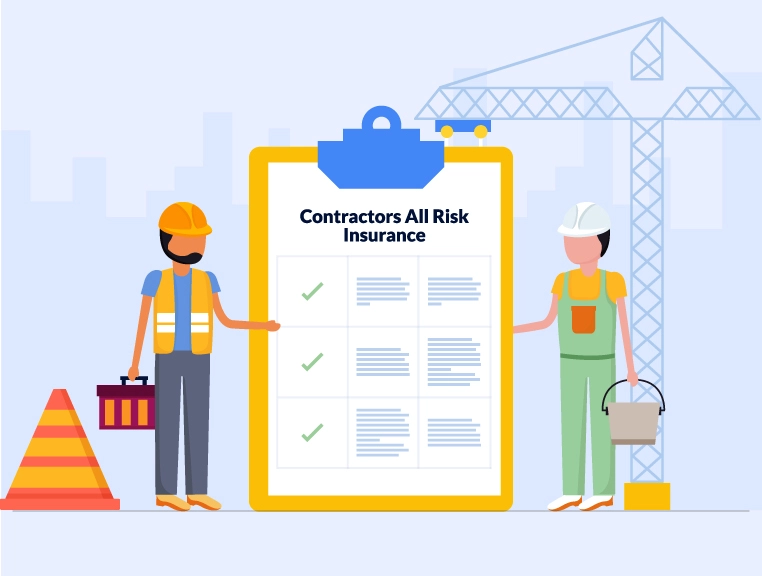In any insurance, the insured transfers the risk to the insurer. However, in undertaking this risk, the insurer charges an amount known as the premium. The insured pays this amount consistently to their insurer. Buyer must know premium calculation in construction all risk policy.
Factors deciding the premium rates of construction all risk policy:
In the construction’s all-risk insurance policy, the insurers consider the quirk of each individual project. While determining the premium amount. In addition, the basis of calculating premium depends on nature of the project and the period of the contract.
Therefore, the factors contributing to the premium calculation in construction all risk policy:
- Project cost
- Sum insured
- Project nature
- Project period
- Geographic location
- Period of testing
The sum insured plays a major role in calculating the premium amount. Also, the sum insured should denote the complete value of the contract work. With including the value of the material supplied, cost of cleaning debris, expected escalation of the contract, etc.
The project period, commencing with the unloading of the first batch of material on the site. It plays a significant role and concludes upon the full completion of the project.
Risk Assessment:
Risk assessment is an important activity carried out by the insurers while determining the premium. So, submitting appropriate and accurate information to the insurers will lead to a fairer amount of the premium.
Read More: What are the general exclusions under construction all risk insurance?
We consider the following factors for risk assessment:
- Exposure of the construction site to various conditions
- Contractor’s experience
- Techniques used in construction
- Building materials used
- Building design
- Construction time schedule
- Consideration of safety factors
So, for deciding the premium rates, the insurers carefully scrutinize:
- Building contract
- Drawings specification
- Construction time schedule
- Other relevant information
Deductibles and premium:
Choosing a contractors all risk insurance covers plan with a high deductible will lower the monthly premium payments. And similarly, having a plan with a low deductible will increase the monthly premium amount.
Premium installments:
If the insurance period exceeds twelve months, we collect the premium in installments. The calculation of these installments is as follows:
- The collection of successive installments maintains a proper interval.(3months at least)
- The percentage of the total premium amount determines the first installment. (5% of premium)
- The insurance company collects the entire premium months before the policy’s expiry date.(6 months at least)
Premium rates:
The following chart gives the premium rates for different types of construction projects: (Source: Insurance Information Bureau of India)
| Sr no | Construction Type | Risk | Premium rates up to the first 3 months | Additional rate per month beyond 3 months |
| 1 | Residential & Commercial Buildings | Different types of RCC construction and a varying number of stories | 1% – 4% | 0.02% – 0.05% |
| 2 | Theaters, Auditorium, and Cinema Halls | Height not exceeding 22 m and span not exceeding 10 m | 2% | 0.02% |
| Height exceeding 22 m and, span exceeding 10 m | 2.5% | 0.03% | ||
| 3 | Factory sheds, Warehouses, Cold storages, Hangars | RCC Construction | 2% | 0.02% |
| Other than RCC construction | 2.25 | 0.02% | ||
| 4 | Roads | Based on area type | 2% – 3% | 0.025% – 0.04% |
| 5 | Flyovers on land | Based on the area spanned | 2.5% – 3% | 0.03% – 0.04% |
Case Study- Premium Calculation under Construction All-risk Insurance:
T.S constructions in Mumbai had secured a significant construction project. Similarly, the project included the construction of a residential complex. Since it was a huge project. The company thought of insuring the construction site with the help of the construction all-risk insurance policy.
Read More: What is the basis of indemnity in Engineering all-risk insurance?
The insurance company asked the T.S construction to supply the required information. Therefore, the company submitted the estimate of the total civil construction work, the period of construction, drawing specifications. And also the building contract along with other relevant documents.
The construction project was an RCC framed structure of 35 stories. The insurance company set a 3.5% fee for the first three months, considering the construction type and number of stories. The insurers considered all risk factors and determined the rate while calculating the premium for construction all-risk policy. T.S. Constructions obtained insurance to protect the site from any potential damage or third-party liability during construction.




